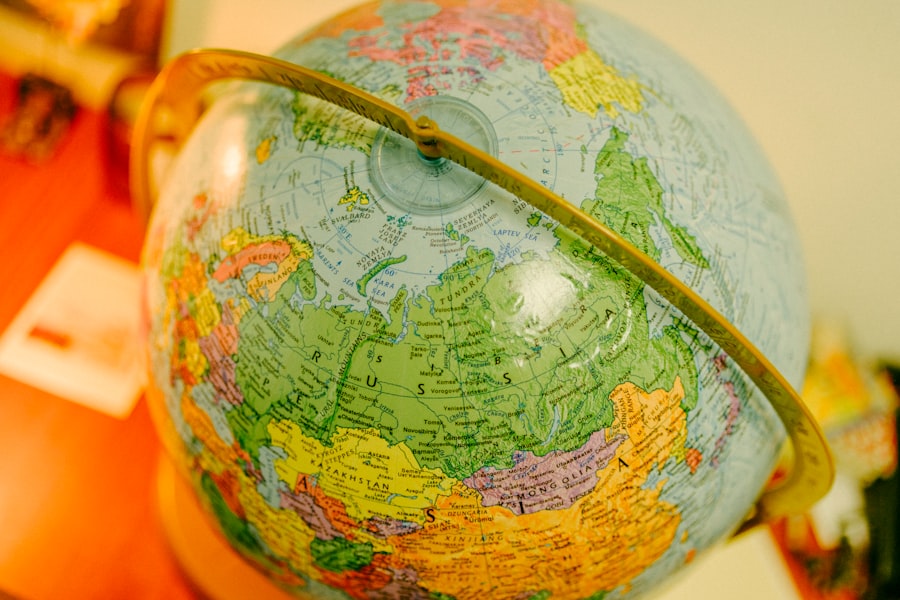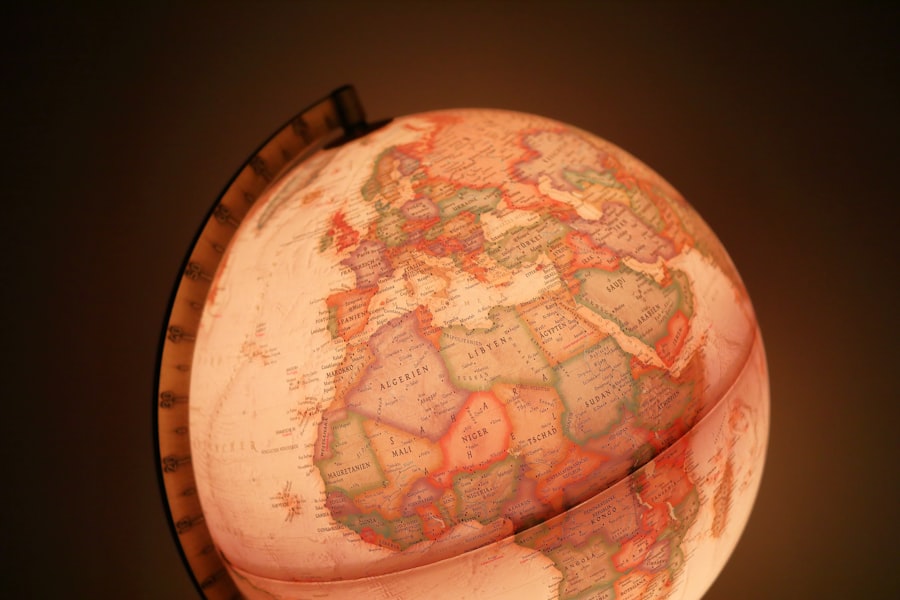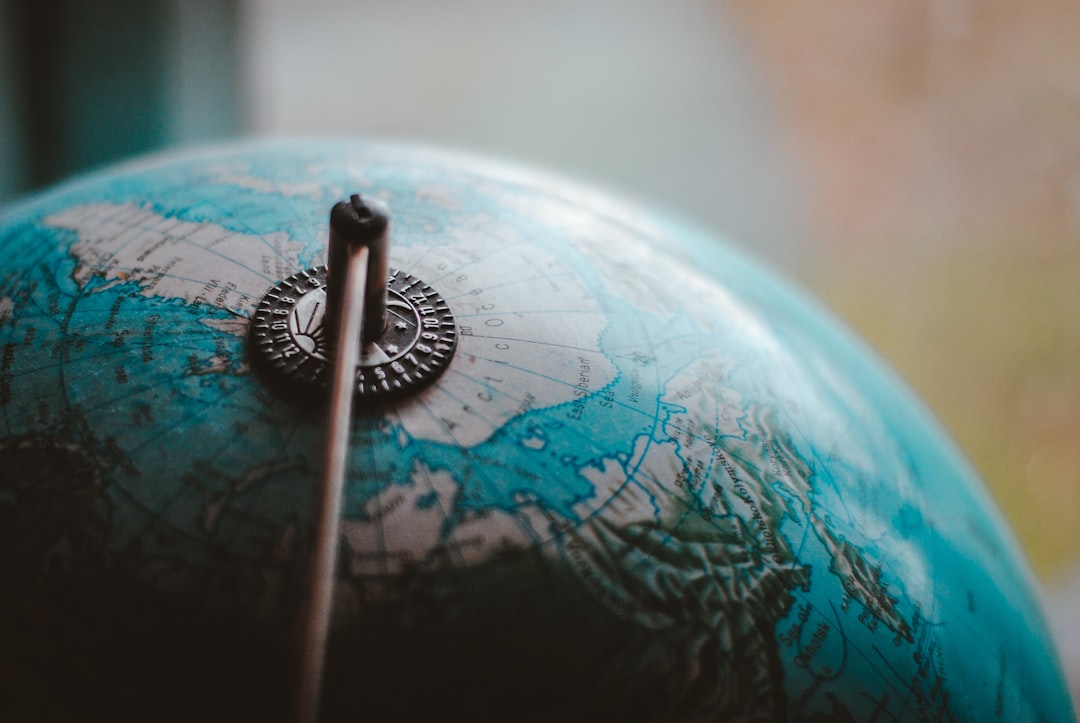Global consciousness refers to the awareness and understanding of the interconnectedness of humanity and the planet. It encompasses a collective recognition of shared challenges, values, and aspirations that transcend geographical, cultural, and political boundaries. This concept has gained traction in recent years as individuals and communities increasingly recognize the impact of their actions on a global scale.
The rise of social media, international travel, and global communication has facilitated a more profound understanding of global issues, such as climate change, poverty, and social justice. As people become more aware of these challenges, they also begin to appreciate the importance of collective action and solidarity in addressing them. The notion of global consciousness is not merely an abstract idea; it is a dynamic and evolving phenomenon that reflects the changing landscape of human experience.
It is shaped by various factors, including technological advancements, cultural exchanges, and the growing awareness of global interdependence. As individuals engage with diverse perspectives and experiences, they contribute to a broader understanding of what it means to be part of a global community. This awareness fosters empathy and encourages individuals to take responsibility for their actions, ultimately leading to a more harmonious coexistence among different cultures and societies.
Key Takeaways
- Global consciousness refers to the awareness and interconnectedness of people around the world.
- Measuring global consciousness is important for understanding global trends, attitudes, and behaviors.
- A measurement framework for global consciousness should consider cultural, regional, and historical contexts.
- Key indicators of global consciousness may include social media trends, cultural movements, and international cooperation.
- Utilizing technology for measurement can involve data collection through social media analysis, surveys, and other digital tools.
The Importance of Measuring Global Consciousness
Measuring global consciousness is essential for several reasons. First, it provides valuable insights into how individuals and communities perceive their roles within the global context. By understanding the levels of awareness and engagement with global issues, policymakers, educators, and activists can tailor their strategies to foster greater participation in addressing these challenges.
Furthermore, measuring global consciousness can help identify gaps in knowledge and understanding, allowing for targeted educational initiatives that promote awareness and action. Additionally, quantifying global consciousness can serve as a benchmark for progress over time. As societies evolve and face new challenges, tracking changes in global consciousness can reveal shifts in attitudes and behaviors.
This information can be instrumental in evaluating the effectiveness of campaigns aimed at promoting social justice, environmental sustainability, and other critical issues. By establishing a framework for measurement, stakeholders can better understand the factors that contribute to or hinder global consciousness, ultimately leading to more effective interventions.
Developing a Measurement Framework

Creating a robust measurement framework for global consciousness requires careful consideration of various elements. The first step involves defining what constitutes global consciousness and identifying its key components. This may include aspects such as awareness of global issues, empathy towards others, willingness to engage in collective action, and understanding of cultural diversity.
By establishing clear definitions and parameters, researchers can create a more focused approach to measurement. Once the components are defined, the next step is to develop appropriate methodologies for data collection. This may involve qualitative methods, such as interviews and focus groups, as well as quantitative approaches like surveys and assessments.
A mixed-methods approach can provide a more comprehensive understanding of global consciousness by capturing both numerical data and personal narratives. Additionally, it is crucial to ensure that the measurement framework is adaptable to different cultural contexts, allowing for a more nuanced understanding of global consciousness across diverse populations.
Identifying Key Indicators of Global Consciousness
| Key Indicators | Description | Measurement |
|---|---|---|
| Environmental Sustainability | Efforts to preserve natural resources and reduce carbon footprint | Carbon emissions, renewable energy usage |
| Social Equality | Promotion of equal rights and opportunities for all individuals | Income inequality, access to education and healthcare |
| Peace and Conflict | Levels of global conflicts and efforts towards peaceful resolutions | Number of armed conflicts, peace treaties signed |
| Humanitarian Aid | Support for communities in need and disaster relief efforts | Amount of aid provided, response time to disasters |
Identifying key indicators of global consciousness is vital for effective measurement. These indicators should reflect the various dimensions of global consciousness while being relevant across different cultural contexts. Some potential indicators include awareness of climate change impacts, knowledge of international human rights issues, engagement in community service or activism, and participation in global dialogues or forums.
Moreover, emotional indicators such as empathy towards marginalized communities or feelings of responsibility towards future generations can also play a significant role in assessing global consciousness. By combining cognitive and emotional indicators, researchers can gain a more holistic view of how individuals relate to global issues. It is essential to ensure that these indicators are measurable and can be assessed consistently across different populations to facilitate meaningful comparisons.
Collecting and Analyzing Data
Data collection is a critical component of measuring global consciousness. Researchers must employ diverse methods to gather information from various demographics effectively. Surveys can be distributed online or in person to reach a broad audience, while interviews can provide deeper insights into individual experiences and perspectives.
Focus groups can also be instrumental in exploring collective attitudes within specific communities. Once data is collected, rigorous analysis is necessary to draw meaningful conclusions. Quantitative data can be analyzed using statistical methods to identify trends and correlations among different indicators.
Qualitative data from interviews and focus groups can be coded and thematically analyzed to uncover common themes and narratives related to global consciousness. By triangulating findings from both quantitative and qualitative sources, researchers can develop a more comprehensive understanding of how global consciousness manifests across different populations.
Utilizing Technology for Measurement

In today’s digital age, technology plays a pivotal role in measuring global consciousness. Online platforms enable researchers to reach larger audiences quickly and efficiently through surveys and interactive tools. Social media analytics can also provide insights into public sentiment regarding global issues by analyzing trends in discussions and engagement on various platforms.
Moreover, advancements in data visualization tools allow researchers to present their findings in accessible formats that can engage broader audiences. Infographics, interactive maps, and dashboards can help convey complex information about global consciousness in an easily digestible manner. By leveraging technology effectively, researchers can enhance their measurement efforts and promote greater awareness of global issues among diverse populations.
Understanding Cultural and Regional Differences
Cultural and regional differences significantly influence how global consciousness is perceived and expressed. What resonates with one community may not hold the same significance for another due to varying historical contexts, social norms, and values. Therefore, it is crucial for researchers to approach the measurement of global consciousness with cultural sensitivity and awareness.
Understanding these differences requires an appreciation for local customs, beliefs, and practices that shape individuals’ perceptions of their roles within the global community. For instance, communities that have experienced colonialism may have distinct views on globalization compared to those that have not. By incorporating cultural perspectives into the measurement framework, researchers can ensure that their findings are relevant and reflective of diverse experiences.
Incorporating Historical and Societal Context
The historical and societal context in which individuals live plays a significant role in shaping their understanding of global consciousness. Factors such as economic development, political stability, education levels, and historical events can all influence how people perceive their interconnectedness with others around the world. For example, societies that have experienced significant social upheaval may have different priorities when it comes to engaging with global issues compared to those with stable political environments.
Incorporating this context into measurement efforts allows researchers to better understand the nuances of global consciousness within specific populations. By examining historical narratives alongside contemporary attitudes, researchers can identify patterns that inform how individuals engage with global challenges today. This holistic approach ensures that measurements are not only accurate but also meaningful within the broader societal landscape.
Collaborating with Experts and Researchers
Collaboration among experts from various fields is essential for advancing the measurement of global consciousness. Engaging with sociologists, psychologists, anthropologists, educators, and environmental scientists can provide valuable insights into different aspects of global consciousness. Each discipline brings unique perspectives that enrich the understanding of how individuals relate to global issues.
Furthermore, partnerships with organizations working on the ground can enhance data collection efforts by providing access to diverse populations and facilitating community engagement. Collaborative research initiatives can also foster knowledge sharing among scholars and practitioners, leading to innovative approaches for measuring global consciousness effectively.
Addressing Ethical Considerations
Ethical considerations are paramount when measuring global consciousness. Researchers must ensure that their methodologies respect participants’ rights and dignity while maintaining transparency throughout the process. Informed consent should be obtained from all participants involved in data collection efforts, ensuring they understand how their information will be used.
Additionally, researchers must be mindful of potential biases that may arise during data collection and analysis. It is crucial to approach research with an open mind while acknowledging one’s own cultural perspectives that may influence interpretations of findings. By prioritizing ethical practices throughout the research process, scholars can contribute to a more equitable understanding of global consciousness.
Applying Findings to Promote Positive Change
The ultimate goal of measuring global consciousness is to apply findings in ways that promote positive change within communities and societies at large. By identifying gaps in awareness or engagement with critical issues, stakeholders can develop targeted interventions aimed at fostering greater understanding and action among individuals. For instance, educational programs designed around specific indicators of global consciousness can empower individuals with knowledge about pressing challenges while encouraging them to take action within their communities.
Additionally, advocacy campaigns informed by research findings can mobilize support for policies addressing social justice or environmental sustainability on a larger scale. In conclusion, measuring global consciousness is an essential endeavor that requires careful consideration of various factors ranging from cultural differences to ethical practices. By developing robust frameworks for measurement and collaborating with experts across disciplines, researchers can gain valuable insights into how individuals perceive their roles within an interconnected world.
Ultimately, these efforts aim not only to understand but also to inspire collective action towards creating a more just and sustainable future for all.
In exploring the concept of global consciousness, it’s essential to consider various perspectives and methodologies that contribute to our understanding of this complex phenomenon.
This article provides insights into the interconnectedness of human thought and the potential for a collective awareness that transcends individual experiences. For more information, you can read the article by visiting this link. This resource offers a comprehensive look at the factors influencing global consciousness and the implications for our shared future.
😲 WATCH THIS! The Secret Data That Proves Our Reality Is A Shared Illusion
FAQs
What is global consciousness?
Global consciousness refers to the idea that all humans are interconnected and share a collective awareness and understanding of global issues and events.
Why is it important to measure global consciousness?
Measuring global consciousness can provide insights into the collective awareness and attitudes of people around the world, which can be valuable for understanding and addressing global challenges such as climate change, poverty, and conflict.
How can global consciousness be measured?
Global consciousness can be measured through various methods, including surveys, social media analysis, and data on global trends and behaviors. Researchers may also use tools such as the Global Consciousness Project, which monitors changes in random number generators around the world to detect potential shifts in global consciousness.
What are the potential benefits of measuring global consciousness?
Measuring global consciousness can help identify areas of common concern and shared values among people worldwide, which can inform efforts to promote global cooperation, empathy, and understanding. It can also provide valuable data for policymakers, organizations, and individuals working to address global issues.
